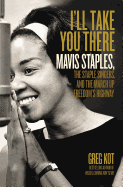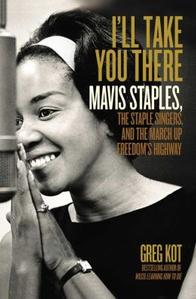

Roebuck "Pops" Staples was working the same cotton fields that his slave grandfather did before he left for Chicago in 1936 at the age of 21. As a boy, he took up the guitar; although forbidden by his strict spiritual parents from playing the blues ("the music of sinners, boozers, and women-chasers"), he slipped out to hear neighbors Charley Patton and Howlin' Wolf growl at local juke joints. In his South Chicago neighborhood, he was lucky to find further musical influence from local talent like Lou Rawls, Sam Cooke and Mahalia Jackson.
Kot traces the unlikely path Pops and his children--Pervis, Cleotha, Yvonne and especially diminutive contralto lead singer Mavis--followed to stardom, beginning in the churches of South Chicago. For several years, they followed the gospel circuit; then Al Bell convinced Pops to sign with Stax and broaden their audience. It was an easy move for the straight-laced Pops to shift from spirituals to civil rights anthems--as Bell notes, hits like "Respect Yourself" and "I'll Take You There" were still "songs designed to inspire, inform and motivate people."
After the family group disbanded, Mavis went on to build her own career, singing with the likes of Wilco, jazz guitarist John Scofield and Bob Dylan. Musically versatile, Mavis is still faithful to her family's gospel roots. Kot's biography, drawing upon a range of first-hand sources--including dozens of musicians, producers and civil rights leaders--is a gem of a history of an overlooked anchor of 20th-century African-American music. --Bruce Jacobs
Shelf Talker: While telling the story of Mavis Staples and the Staple Singers, Kot also reveals how their blend of gospel, blues and R&B inspired the civil rights movement.

